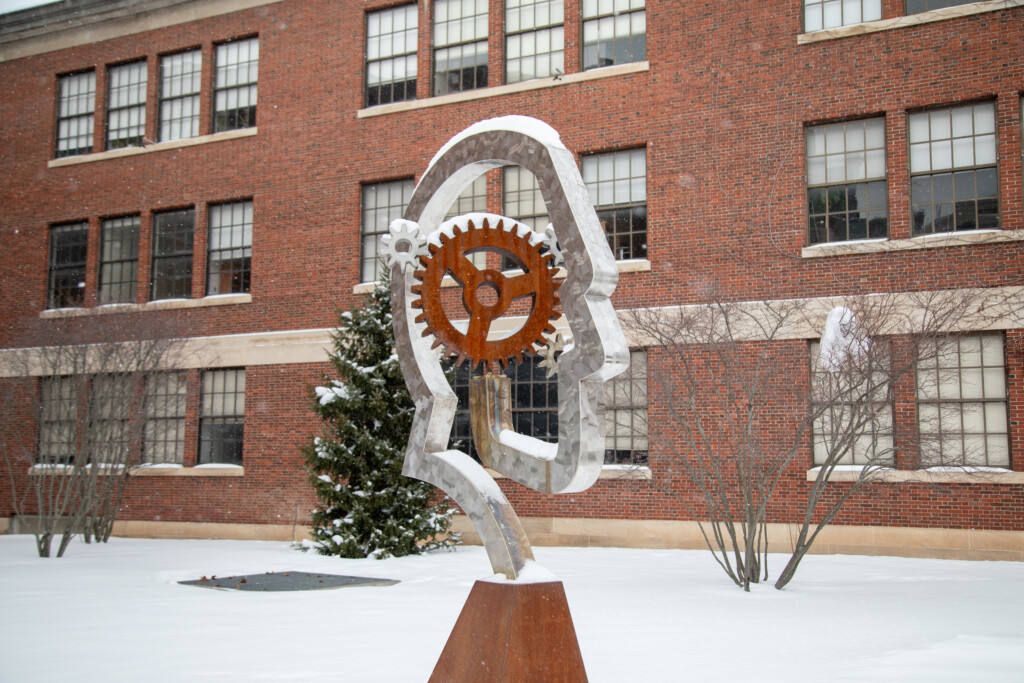UR President Joel Seligman feels that the recent stimulus package signed by President Barack Obama has two objectives to revitalize the economy and address unemployment and is hopeful that the package will help with both.
Seligman added the package is a bold experiment and feels that if the plan doesn’t work perfectly, it can be adjusted. He said we would have to wait a few years to make a judgment on its success.
Obama has said the stimulus package, which was signed into law Tuesday in Denver, includes record investments in education, new energy research and new infrastructure. Obama also said the plan signified the beginning of what we need to do to create jobs for Americans.
The $787 billion stimulus package allocates $53 billion for education. Seligman was pleased with the stimulus package’s allocation to education investment.
“Obama sees education as a vehicle for opportunity,” he said.
Seligman detailed three parts of the stimulus package that were most relevant to the University, including an increase in Pell Grants and scholarships available to students, federally sponsored research and federal support for health care.
The stimulus package directs $15 billion toward federally sponsored research. Professors, faculty and medical workers will have to apply for research funding on a case-by-case basis. Seligman hoped the University would continue to participate in research.
In the medical field, UR Medical Center faced a potential $31 million shortfall in Medicaid funding when New York Governor David Paterson outlined his budget in December, which by state law, is required to be balanced. Seligman added that the new federal stimulus package allocates funds for Medicaid and will narrow the budget gap that URMC is currently facing.
It is estimated that the stimulus package would create or save over 200,000 jobs in New York State. Governor Paterson predicted New York would receive $24 billion over the
next few years and fewer layoffs statewide will occur.
In deliberations for the stimulus package, many Republicans bemoaned that Obama was not showing enough bipartisanship in the package, even though the bill included $280 billion in tax cuts, a Republican platform. Only three moderate Republican senators voted in favor of the bill. The house vote was divided perfectly along party lines.
Seligman remained neutral when asked whether he thought Obama did enough bipartisan work. ‘The reality is the law was passed,” he said. ‘We’ll judge the quality of legislation in terms of the consequences.”
Seligman emphasized that recovery and reducing unemployment remained the top two priorities that the American economy is facing. President Obama hopes that the stimulus package will save or create close to 3.5 million jobs. The stimulus package is not the only way Obama is working to alleviate economic woes. On Wednesday, he announced a plan to encourage homeownership, including incentives for mortgage lenders to provide more affordable loans.
University faculty have expressed to media outlets their views on the stimulus package. Dean of the Simon School of Business Mark Zupan and Gleason Professor of Business Administration James Brickley recently wrote editorials in the Democrat and Chronicle.
Zupan warned that the stimulus package would ‘significantly hobble the entrepreneurial vitality of our economy over the long run.”
He then added a litany of problems he had with the stimulus package. The Congressional Budget Office determined the package lacks any immediate effect.
He added that politicians have added clauses to the bill that adhere to many special interests. His central point was that government involvement in the economy is hard to reverse. He pointed to ongoing federal support and negotiations with the automobile industry as something that would continue.
On the other hand, Brickley argued that the current economic situation demanded intervention.
‘While the result is not perfect, the reality is that our political system is incapable of designing an ideal stimulus,” he wrote in his editorial.
Although he expressed doubts as to whether the stimulus package would work he added that failure to act would be a bigger detriment to the economy.
Willis is a member of
the class of 2011.
